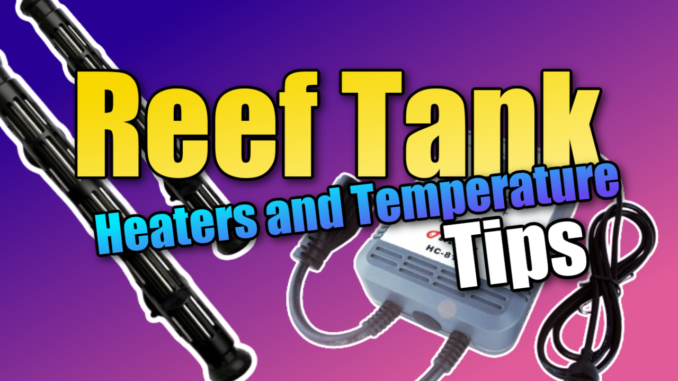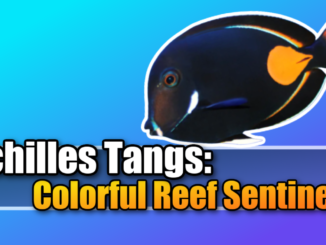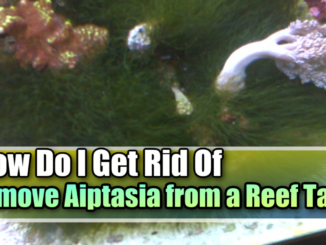
Heaters are really important for keeping the water in your reef tank at the right temperature. Fish, corals, and other sea creatures need the water to stay warm and steady, just like in their natural homes in the ocean. If the water gets too hot or too cold, it can make the animals sick or stressed. So, having a good heater helps keep your tank healthy and your sea creatures happy.
Why is Temperature Important for Reef Tanks?
Reef tanks have animals from warm, tropical oceans, where the temperature stays between 76°F and 80°F (24°C to 26°C) all the time. If the temperature changes a lot, it can cause problems:
- Too hot: Corals can get sick and lose their color. This is called “coral bleaching.”
- Too cold: Fish and corals can stop growing and become weak.
Keeping the water temperature steady helps everything in the tank grow and stay strong.
How Do Heaters Work?
Aquarium heaters warm up the water in the tank. They turn on when the water is too cold and turn off when it reaches the right temperature. Heaters have a special part inside that heats up and spreads warmth into the water.
Types of Heaters:
- Submersible Heaters: These are placed fully underwater. They work well because they spread heat evenly in the tank.
- In-line Heaters: These are connected to filters and warm up water as it flows through tubes.
- Hanging Heaters: These hang partly outside the tank. They are less common because they don’t heat as evenly.
- Heater Controllers: These are extra devices that help control the aquarium heaters more precisely. They can turn off the heater if the water gets too hot.
Choosing the Right Heater
Here’s a simple heater size guide to help you pick the right wattage for different tank sizes:
Reef Tank Heater Size Guide:
| Tank Size (Gallons) | Recommended Heater Wattage |
|---|---|
| 10 gallons | 50 watts |
| 20 gallons | 75-100 watts |
| 30 gallons | 100-150 watts |
| 40 gallons | 150 watts |
| 50 gallons | 200 watts |
| 60 gallons | 200-250 watts |
| 75 gallons | 250-300 watts |
| 90 gallons | 300-350 watts |
| 100 gallons | 300-400 watts |
| 125 gallons | 400-500 watts |
| 150 gallons | 500-600 watts |
| 180 gallons | 600-700 watts |
| 200 gallons | 700-800 watts |
| 220 gallons | 800-900 watts |
Tips for Heater Selection:
- Cold rooms or areas: If the tank is in a cooler room, you may need a heater with more wattage.
- Use multiple heaters: For larger tanks (over 50 gallons), consider using two smaller heaters instead of one big one for even heat distribution and safety.
- Wattage rule: As a general rule, use 3-5 watts per gallon of tank water.
This guide should help you select the right size heater to keep your reef tank at the ideal temperature!
It’s also smart to use two heaters in a tank:
- Backup: If one heater stops working, the other keeps the water warm.
- Even Heating: Two heaters can help spread heat more evenly.
Where to Put Your Heater
Put your heater near water movement, like close to a filter or pump, so the heat spreads throughout the tank. If you have a sump (a small tank connected to your main tank), put the heater in the part where water flows the most.
Checking the Temperature
It’s important to check the temperature of your reef tank often. Use a thermometer to make sure the heater is working correctly. You can also use a heater controller to make sure the temperature stays just right.
What Happens If the Temperature Changes Too Much?
Big changes in temperature can hurt the animals in your reef tank. Problems you might face:
- Overheating: If a heater gets stuck in the “on” position, the water can get too hot.
- Underheating: If a heater stops working, the water can get too cold.
Both can make fish and corals sick, so it’s important to check your tank temperature and other reef tank parameters regularly.
Keeping Heaters Working Well
Heaters need regular care to work properly:
- Test the Heater: Check if the water is staying at the right temperature.
- Clean the Heater: Over time, heaters can get covered with salt or algae. Clean it gently so it works better.
- Replace Heaters: After 2-3 years, it’s good to replace your heater even if it still seems fine.
Backup Heaters and Alerts
It’s smart to have a backup heater just in case your main heater stops working. Also, using a temperature alert system can help you know if the water gets too hot or too cold. It’s like a warning system to protect your tank.
Seasonal Changes
During summer, heaters might not need to work as much because the air is warmer. But in winter, you may need more heating to keep the water warm enough. For example, in colder places like Maine, heaters work harder during the winter.
In summary, a good heater helps keep your reef tank at the right temperature, making it a safe and healthy place for your fish and corals. Make sure to pick the right heater, place it well, and check the temperature often to keep your reef tank in great shape!




